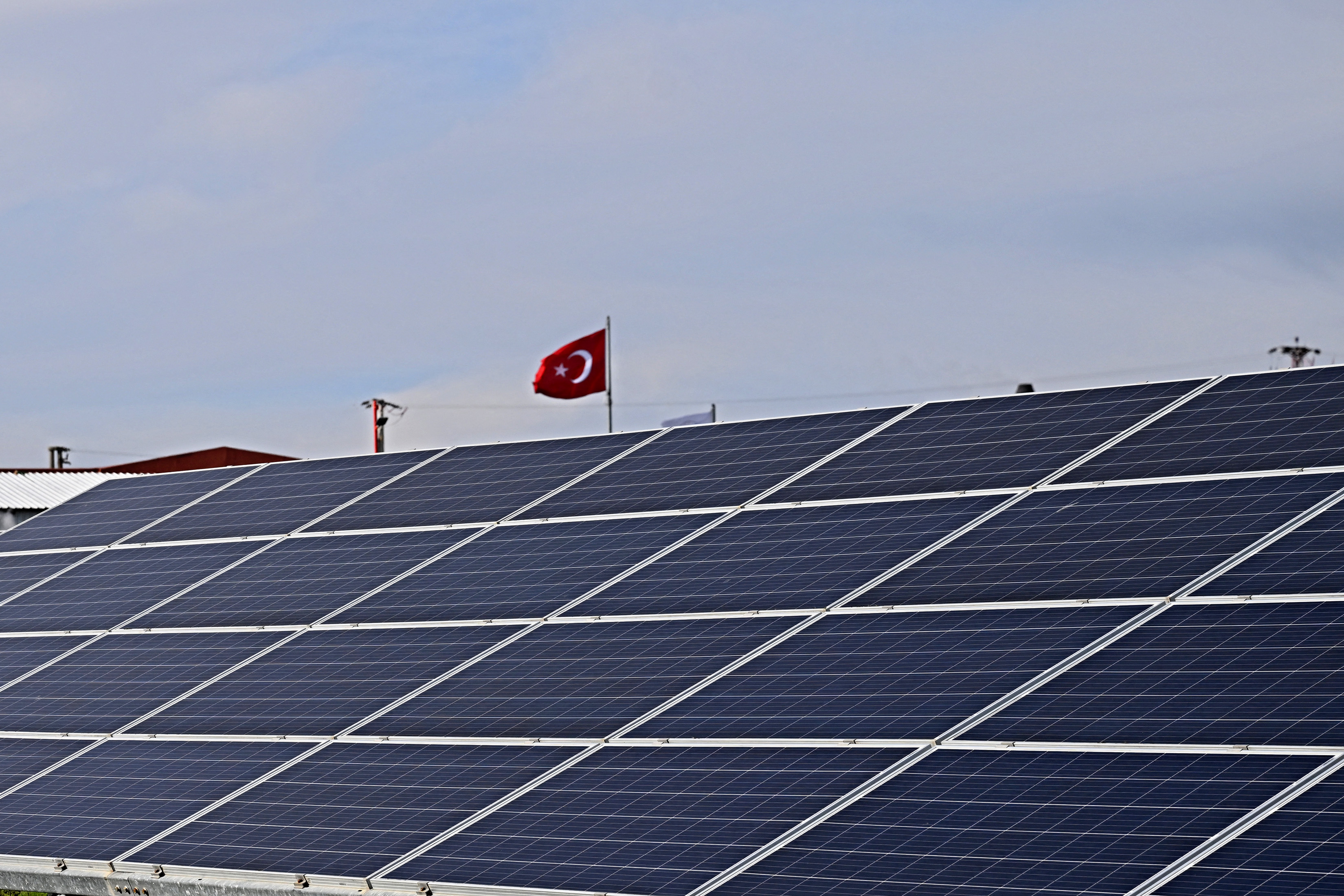
Authorities are at the final stage in concluding technical work on new capacity allocation, the minister told reporters, according to Hürriyet Daily News.
“When we allocate this capacity to our companies, our expectation from them is that these investments will be realized and that new installed capacity comes online as soon as possible,” he said.
“Our industrialists will be able to use this capacity, mainly solar and wind, for their own consumption, in the coming period.”
Renewables are key to reducing Türkiye’s dependence on foreign energy resources and meeting its climate targets, the minister added, noting that 55 percent of the country’s installed power consists of renewable resources.
The target in renewables is creating 5,000 megawatts of installed power every year, including 3,500 megawatts in solar and 1,500 megawatts in wind, Bayraktar said.
“We want to reach a total new installed capacity of 60,000 megawatts over the next 12 years.”

Bayraktar unveiled that Türkiye’s installed electricity capacity last year rose by 2,858 megawatts, with renewables accounting for 99.5 percent of this increase.
The country’s total installed capacity reached 106,668 megawatts in 2023, while renewable installed capacity climbed to 59,236 megawatts.
Some 326.3 terawatts of electricity were produced last year, with the share of renewable resources in power generation at 42 percent.
During his meeting with reporters on Jan. 25, Bayraktar also noted that natural gas exploration activities in the Black Sea that are being carried out by three drilling ships, while another ship, Abdülhamid Han, is conducting its drilling in the Mediterranean Sea.
“This year we will focus on production in the Black Sea natural gas field, but we may also see new discoveries. Without conducting drillings, it is not possible to say anything right now. We have several plans regarding exploration, especially in the Black Sea,” he said.
The minister also stressed that Türkiye needs to work on the infrastructure for electric cars.
The number of vehicles on the roads is increasing and this is becoming a burden, Bayraktar said, adding that there is strong demand for power used by electric cars. “We need a new infrastructure.”
Electric vehicle sales soared more than 800 percent last year to 72,179, accounting for 7.5 percent of all vehicles sold in Türkiye.